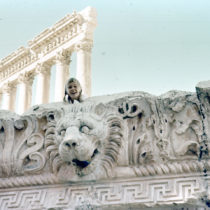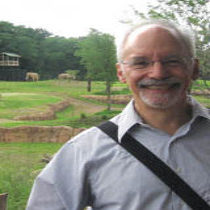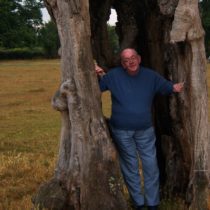Landscape Architecture for Landscape Architects › Forums › PLANTS & HORTICULTURE › 9/11 memorial Trees – Is anyone thinking?
- This topic has 1 reply, 6 voices, and was last updated 15 years, 4 months ago by
 Rob Halpern.
Rob Halpern.
-
AuthorPosts
-
September 29, 2010 at 2:01 pm #167648
 Trace OneParticipant
Trace OneParticipanti agree, I already said before that this site is entirely artificial.. that does not mean there is not a context, (There were SWOaks in Brooklyn, as far as I know..) nor that there is a need to get beyond sweetgums, very very often, and at least looking at what is local can help the brain get out of the grooves..
I actually can’t believe Sweet Gums were chosen in the first place..I think we all have a responsibility to not plant the same damn thing over and over, and god knows sweet gums are nothing if not really way too common right now..
September 29, 2010 at 2:01 pm #167647 Dane K. SpencerParticipant
Dane K. SpencerParticipantA good example of what cannot be replicated in a monoculture can be found in our practice of silviculture. Doug Fir / Hemlock monocultures for example are devoid of soil fungi that are symbiotic if not essential health of the entire ecological system.
For instance, there exists a vole that eats only a certain type of mushroom that grows naturally in native doug fir forests. The vole excrement combines with an enzyme in the gut that makes up take of nutrients by the the root system possible. Without the vole, each tree has to have it’s natural immune system beefed up by commercially produced chemicals to enhance crop yield. But, that’s just one example.
Monoculture species can tend to get out of control when improperly managed. New Zealand would love to rid itself of the Monterey Pine if it could. New Mexico would like to get rid of the Russian Olive, and Southern Florida would like to eradicate the Austrian Pine as noted below.
“This is a destructive invasive species! Australian pine is an extremely aggressive and densely rooted species that smothers its struggling competitors under a heavy blanket of needle-like litter. Monocultural stands displace sand-binding native dune and beach vegetation, encouraging coastal erosion, changing soil chemistry, degrading wildlife habitat, and drastically altering coastal environments. Few animals can survive in the ecologically sterile interior of an Australian pine forest. The Plant Conservation Alliance names this species as an Alien Invader. It is listed as a Category I invasive exotic species by the Florida Exotic Pest Plant Council.”
http://www.floridata.com/ref/c/casu_equ.cfm
If we don’t consider these problems within our designs, all we are are decorators.
September 29, 2010 at 2:10 pm #167646 Rob HalpernParticipant
Rob HalpernParticipantIf what you are advocating is basically “Think about native plants so you are not only thinking about all the Asian landscape Usual Suspects” then absolutely! I guess I didn’t get that point because I don’t think of plantings in such a way.
October 3, 2010 at 4:07 am #167645 Les BallardParticipant
Les BallardParticipantUse what was there before the concrete. Keep it natural. Reduce outside or foreign species to below 10%. Remember there are prone species as with juniper. As for maintenance, keep tidy, Other than that, give me the job!
-
AuthorPosts
- You must be logged in to reply to this topic.


